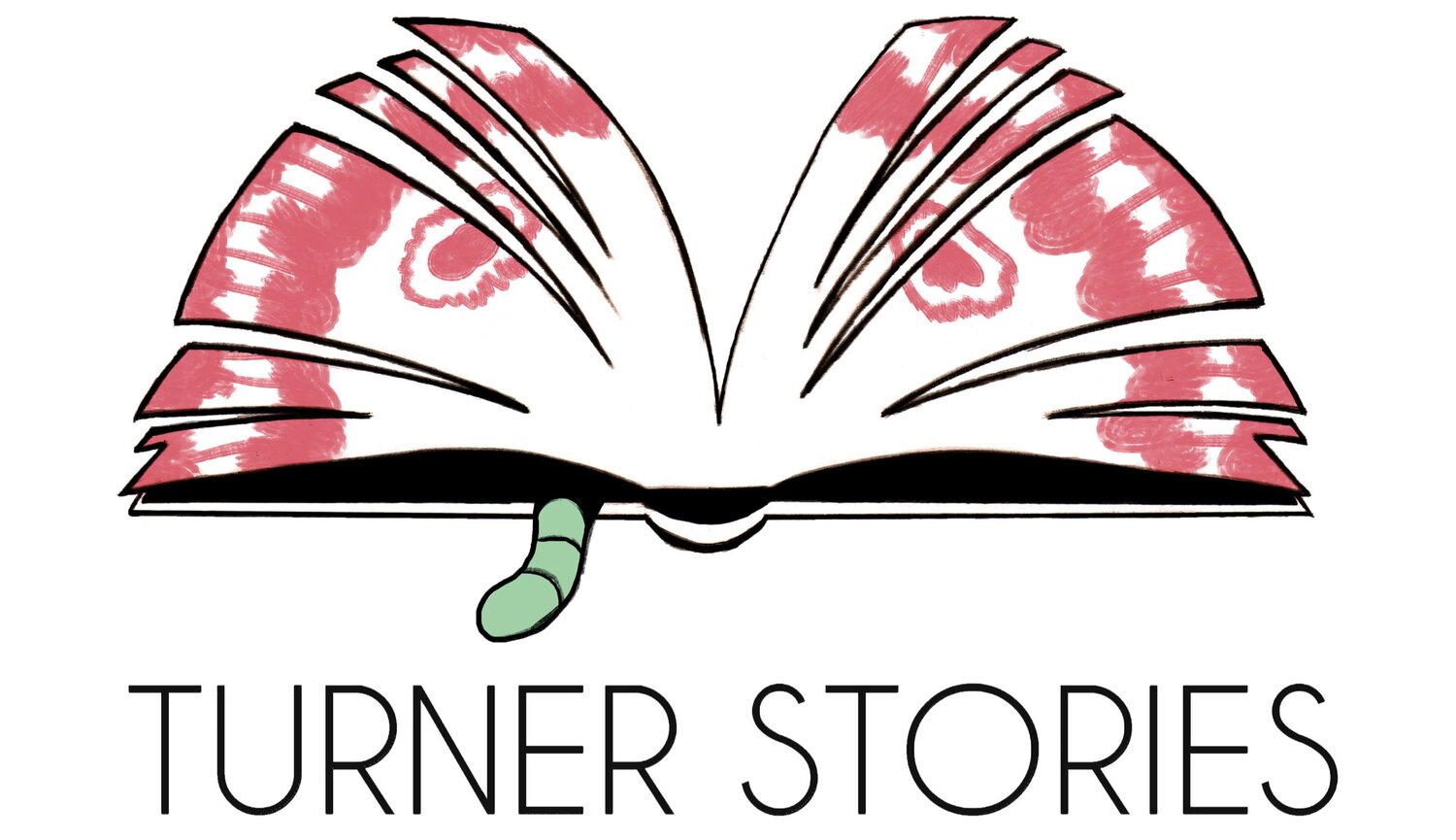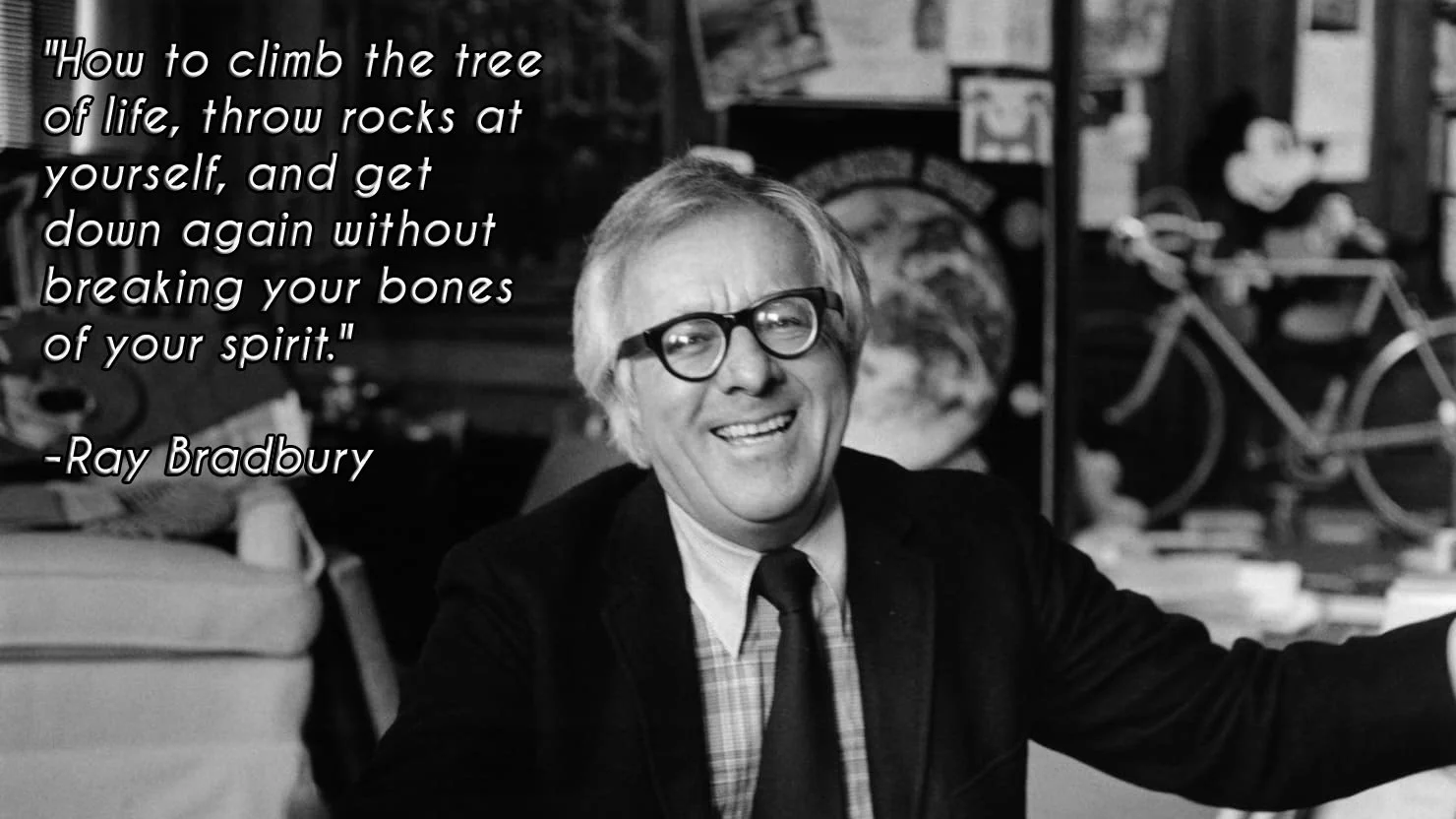Ray Bradbury's Tips on Writing and Creativity
5 Lessons from ‘Zen in the Art of Writing’
Michael Ochs Archive/Getty Images
“There is only one type of story in the world. Your story.” — Ray Bradbury
The man who wrote a book about a future society in which books were banished and burned (this would be my ultimate nightmare), wrote that same book enclosed by books in the library. The irony of this is one of the reasons I find Bradbury such an interesting character.
The book I’m talking about is, of course, the classic ‘Fahrenheit 451’. Another trivia fun fact: Bradbury named the character Montag after a paper manufacturing company. And Faber is named after a maker of pencils! He calls his own subconscious “sly”. I can see why.
Lucky for us, he documented his thoughts on writing and creativity in many essays. Some of which are bundled in the short book ‘Zen in the Art of Writing’. I marveled at his insights, sometimes catching myself saying “I feel that way too” — out loud that is.
His take on creativity and the craft of writing is truly inspiring. In this article, I collected the insights that spoke to me most and fueled them with my own experiences or insights. I hope they will be equally inspiring to you.
#1: Be Excited About Your Craft
“For the first thing a writer should be is — excited. He should be a thing of fevers and enthusiasms. Without such vigor, be might as well be out picking peaches or digging ditches; God knows it’d be better for his health.” — Ray Bradbury
Whether it be writing or something else, if you don’t like what you’re doing it doesn’t really make sense to continue doing it right?
However, this is easier said than done. I’ve had jobs I didn’t like at all, but I stuck with them anyway. Why? Because of convenience, fear or a general insecurity about my direction in life. And that’s ok. Now I know that you should analyze the things you are genuinely excited about.
Love taking care of people? Get a job in a nursery home for the elderly or study Medicine. Are you good at staying fit and gaining muscle and you want to help people achieve the same goals? Consider becoming a personal trainer. Oh well, you catch my drift.
Now if you love singing, but you have a good job and a lot of responsibilities, don’t throw all that away to blindly chase your dream. Do it on the side. Grow, expand and experience first.
For me, this excitement comes from writing. And I get it when Bradbury says things like “not to write, for many of us, is to die”. An exaggeration of course, but when I haven’t written anything for more than three days, I become anxious. My fingers long for my keyboard and the ideas in my head must find their way to the page.
Are you enthusiastic about what you’re doing? Or is there perhaps something else you might like better? Try it! If you’re excited about something, you may have found your ‘calling’.
Would you like to read more about this subject? I’ve written a piece about finding one’s path and following your dreams fueled with insights by Paulo Coelho.
Bradbury: “What do you want more than anything else in the world? What do you love, or what do you hate?
I believe one thing holds it all together. Everything I’ve ever done was done with excitement, because I wanted to do it, because I loved doing it.”
#2: On Creating Habits to Persist in Your Craft and Never Give Up
“How to climb the tree of life, throw rocks at yourself, and get down again without breaking your bones of your spirit.” — Ray Bradbury
Bradbury states he wrote at least a thousand words a day every day from the age of twelve on. “For ten years I wrote at least one short story a week, somehow guessing that a day would finally come when I truly got out of the way and let it happen.”
I’ve come across this piece of advice in many forms. Most notably from Stephen King too. When I first read it a little over half a year ago, I’ve applied it immediately. This has proven to be one of the most important writing habits I’ve followed up on. It’s resulted in a huge spike in my output.
Of course, you must be willing to write something down which is imperfect.Cram it down and see your story move forward.
Because of this, I’m now at about one-third of my novel, hitting at least 80,000 words already.
Bradbury: “I’m accustomed, you see, to getting up every morning running to the typewriter, and in an hour I’ve created a world. I don’t have to wait for anyone. I don’t have to criticize anyone. It’s done. All I need is an hour, and I’m ahead of everyone. The rest of the day I can goof off. I’ve already done a thousand words this morning; so if I want to have a two or three-hour lunch, I can have it, because I’ve already beat everyone.”
This is it. This is me too. The accomplishment felt at 8.30 in the morning is immense. I’ve written 500–1,000 words before my workday begins!
Naturally, I don’t manage to write every day (I’m human), but I usually hit six days a week. That’s about 4,000–6,000 words a week! That’s half a chapter.
Bradbury: “For I believe that eventually quantity will make up for quality. Quantity gives experience. From experience alone can quality come. […] To fail is to give up. But you are in the midst of a moving process. nothing fails then. All goes on. Work is done. If good, you learn from it. If bad, you learn even more. Work done and behind you is a lesson to be studied. There is no failure unless one stops. Not to work is to cease, tighten up, become nervous and therefore destructive of the creative process.”
New eBook
How to Write a Short Story. A complete guide for $3.99 on Amazon.
#3: How to Keep and Feed a Muse
“Art will fly if held too lightly,
Art will die if held too tightly,
Lightly, tightly, how do I know,
Whether I’m holding on or letting Art go?”
— Oscar Wilde
The Muse is a fickle thing and one must deal with her (my Muse is a she) delicately. One must be firm enough to gently send her away, take notice of her whispers and note them, but continue with what it was you were doing. Other times, you’re waiting impatiently for her to arrive. That won’t work.
What does work for me, however, is to be open to her visits and feed her with my experiences.
Bradbury: “It’s my contention that in order to Keep a Muse, you must first offer food. […] Sounds, sights, smells, tastes, and textures of people, animals, landscapes, events, large and small. Our impressions and experiences and our reaction to them.”
Use your senses and feed The Muse. No one looks at the world exactly the same way. No one sees his or her experiences in the same order or light as another man. Share your view of the world through your art.
Bradbury: “Every man will speak his dream. And when a man talks from his heart, in his moment of truth, he speaks poetry.”
Read books, poetry, short stories or novels to expand your senses and get inspired. A tip Bradbury gives is to zoom in on a particular subject. Take on books about the senses (literally), for instance, one about scents. Use what you learn in your prose.
Bradbury: “The most improbable tales can be made believable, if your reader, through his senses, feels certain that he stands at the middle of events.”
#4: How to Generate and Interact with Ideas
“When people ask me where I get my ideas, I laugh. How strange — we’re so busy looking out, to find ways and means, we forget to look in.” — Ray Bradbury
When people read my short stories, they always ask where I get my ideas from. How did I come up with it? Where does my imagination come from?
Valid questions which aren’t easy to answer, but when I read what Bradbury says above, it clicked.
Bradbury: “What do I really think of the world, what do I love, fear, hate? Begin to pour this on paper.”
First off, my ideas come from observations in the world around me. They may stem from art like films or books, conversations, paintings in museums, the news etc. The thing is though, I write about them because these observations connect with viewpoints I have about the particular subjects, opinions I’ve formed, questions I have. About the world, about people, about the future. I wrote about this before.
Ideas drove forth Bradbury’s progress and enthusiasm for the craft. He never ran out of them. Always thinking, wondering and exploring his inner and outer world.
When ideas hit you or let’s put it nicer: when The Muse grants you with a visit, you need to catch the ideas before they slip away. Start writing, composing, or sketching.
Don’t have time? At least write your ideas down. Keep a list, write it on a notepad you carry with you at all times (or for the digital generation like me, type them into a note app). More on this can be read here. Bradbury did it too!
#5: On Why One Should or Shouldn’t Write
“It is a lie to write in such a way as to be rewarded by money in the commercial market. It is a lie to write in such a way as to be rewarded by fame offered you by some snobbish quasi-literary group in intellectual gazettes.” — Ray Bradbury
Write because you want to. No, because you need to. Because it excites you, unlike anything you’ve ever done.
Sure, you want readers and money and you daydream about your book being on the number one spot on the New York Times Bestseller list. I’m not going to lie, I crave that too. But it’s NOT the reason I write. I write because I have to. And first, I write for myself. To please only myself with a story. If I’ve won myself over, then I’m ready to share it with someone else and make it better.
Bradbury: “What is the greatest reward a writer can have? Isn’t it that day when someone rushes up to you, his face bursting with honesty, his eyes afire with admiration and cries, ‘That new story of yours was fine, really wonderful’. Then and only then is writing worthwhile.”
Every time someone takes the time to reach out to me and say they like a story or blog post, I feel like a teenage boy whose year-long crush finally takes notice of him. It’s such a nice feeling, if you’re an artist of any kind, I’m sure you understand.
Bradbury: “Each of you, curious about creativity, want to make contact with that thing in yourself that is truly original. You want fame and fortune, yes, but only as rewards for work well and truly done. Notoriety and a fat bank balance must come after everything else is finished and done. That means that they cannot even be considered while you are at the typewriter.”
It’s not wrong to want to earn money with your art, one must only realize that it should not be your reason to create.
Bonus: So, Where Are Bradbury’s Practical Tips About Writing Then?
In his book, Bradbury rather shares creative insights about his writing journey, rather than hands-on practical tips. However, I found two very useful nuggets I just had to share:
On building characters: “What does your character want, what is his dream, what shape has it, and how expressed? Given expression, this is the dynamo of his life, and your life, then, as Creator.”
On plot: “Plot is no more than footprints left in the snow after your characters have run by on their way to incredible destinations. Plot is observed after the fact rather than before. It cannot precede action. It is the chart that remains when an actions is through. That is all plot ever should be. It is human desire to let run, running, and reaching a goal. It cannot be mechanical. It can only be dynamic.”
There you have it, these were the lessons I took from Ray Bradbury. What’s your favorite?
Join my email list to keep in touch.
Please note: this post contains affiliate links.



